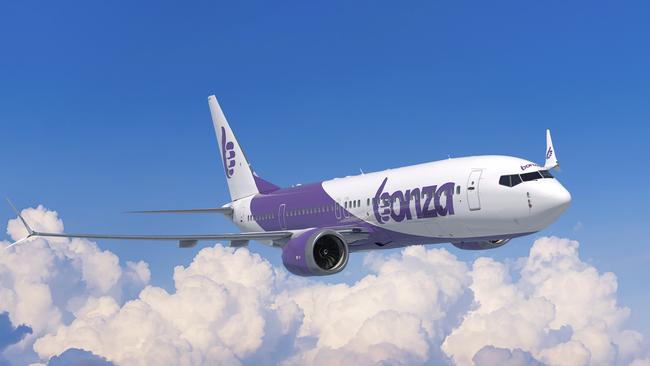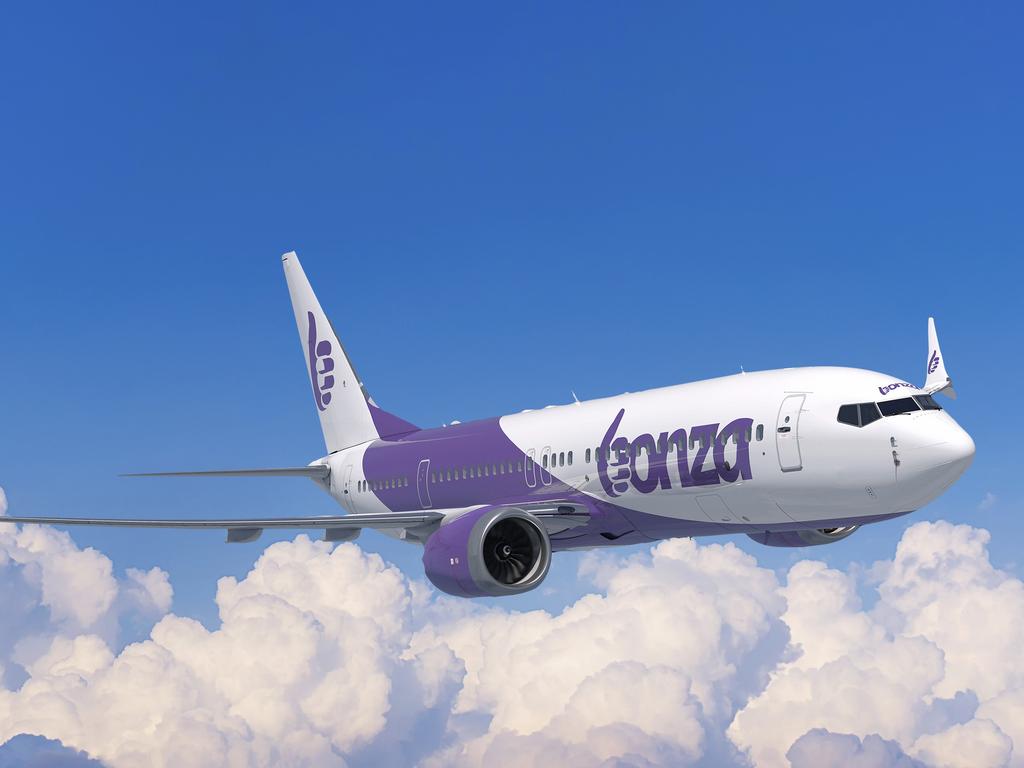Ready for takeoff: budget airline Bonza banks on travel demand
At a time when most airlines are struggling to survive, ‘Bonza’ the budget carrier is preparing for takeoff in Australia early next year.

Starting an airline is never a venture for the faint-hearted, with enormous start-up costs, a raft of regulation to navigate and a fiercely competitive marketplace.
Throw a pandemic into the mix and the prospects of success would appear even more remote given the uncertainty surrounding the recovery of air travel.
But for the operators of the proposed “Bonza” airline, a new Australian low-cost carrier aiming for takeoff early next year, the current environment presents an opportunity like no other. After months of enforced isolation and restricted movement, residents will be desperate to travel, to see family and friends and go on holidays, and no one will want to miss out.
“We believe there is an opportunity. When you look at what’s happened to Australia demographically since Virgin Blue launched 21 years ago, the population has grown by a third since then, let alone what’s happened across large regional centres throughout the country,” says Bonza CEO Tim Jordan, a former Virgin Blue executive.
“That means the opportunity for us is very, very real and gives us a very significant chance of succeeding maybe where others haven’t.”
The “others” include Ansett, Compass, Compass II, OzJet and Air Australia, not to mention the ill-conceived “brad” airline which failed to progress beyond a crowd-funding bid.
Jordan says with Miami-based private investment firm 777 Partners backing Bonza, their chances of success are high.
“They have assets under management just shy of $US6bn ($8.2bn). They have investments in about 50 portfolio companies across six or seven different focus areas of which aviation is one, and is growing quite rapidly,” he says.
“The best reference point for us is, they are a significant shareholder in Flair Airlines, which is the only independent low-cost carrier in Canada, so they have significant experience in doing exactly this, and have seen the opportunity with Australia.”

He is also quick to dismiss any comparison with Bain Capital, the US private equity firm that bought Virgin Australia at the height of the pandemic for $3.5bn.
“777 Partners are an investment firm, not private equity, so of those 50-plus investments that they have, they haven’t exited any of them. They are in this for the long haul and I think that’s very important,” says Jordan.
His own credentials for running airlines are also pretty impressive, having begun his career with United Airlines, followed by high-level stints with Virgin, The Philippines’ Cebu Pacific and most recently central Asia low-cost carrier Air Arystan.
“In two and a half years that airline has grown from not existing to being the largest passenger-carrying airline in Kazakhstan, and incredibly in the first half of 2021 over 2019, the Kazak domestic market has grown by 37 per cent, which probably makes it the fastest-growing aviation market in the world,” he says.
“That’s despite the current issues of the world, so that shows you the power of what low-cost carriers can do, when you see an opportunity and execute that opportunity – and Bonza is that opportunity for Australia.”
Any similarities between Australia and Kazakhstan may not be immediately apparent but Jordan begs to differ.
He points out Kazakhstan is much like a smaller version of Australia, with a population of 20 million and a cross-country flying time of about three hours.
“And a lot of Kazakhstan gets dug out of the ground and sent to places around the world so there are similarities which you don’t sort of grasp immediately but I do see similarities in terms of there being pent-up demand for travel across Australia, just like there was pent-up demand for travel in Kazakhstan.”
With four other airlines also clamouring to carry Australians across the country, Jordan recognises the need for a major point of difference, which in Bonza’s case will be price and routes.
Although the carrier’s network remains under wraps for now, Jordan says they will seek to fly routes currently not being serviced, using a handful of Boeing 737s at the outset.
Airfares promise to be “30 to 40 per cent” cheaper than the competition, maybe even lower, but don’t expect a string of what he calls “stunt fares”.
“Anybody can have stunt fares. In The Philippines we used to have 1c fares. The trouble is all they do generally is cause a lot of dissatisfaction. That’s not what this is about,” he says.
“In order for this to succeed we have to lower average fares.”
Providing Bonza is granted an air operator’s certificate by the Civil Aviation Safety Authority, the plan is to sell tickets from early next year for flights in the second quarter of 2022.
As ambitious as the time frame might sound, it’s not unrealistic, with Virgin Blue pulling off a similar feat in 2000.
Jordan says as far as 777 Partners are concerned, failure is not an option. “They understand that this may take some time but they see the scale of the opportunity,” he says.
“They are a sophisticated aviation investor and see the considerable upside of what we’re going to be executing here.”








To join the conversation, please log in. Don't have an account? Register
Join the conversation, you are commenting as Logout